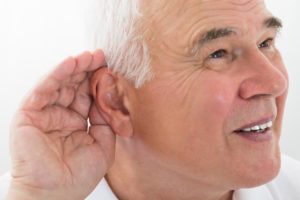This is how the AI article summary could look. Lorem ipsum dolor sit amet, consectetur adipiscing elit, sed do eiusmod tempor incididunt ut labore et dolore magna aliqua. Ut enim ad minim veniam, quis nostrud exercitation ullamco laboris nisi ut aliquip ex ea commodo consequat.
10 Common Hearing Problems – When to Worry and When to See a Doctor

Here are 10 common hearing problems, their symptoms; and when to worry, and when to see a doctor.
1. Age-Related Hearing Loss
- What it is: Gradual loss of hearing due to aging
- Symptoms: Difficulty hearing high-pitched sounds, trouble understanding speech in noisy environments
- When to Worry: If you notice a gradual decline in hearing over time
- When to See a Doctor: If you’re experiencing significant hearing loss or difficulty communicating
2. Noise-Induced Hearing Loss
- What it is: Permanent damage to hearing due to prolonged exposure to loud noises
- Symptoms: Ringing in the ears (tinnitus), muffled hearing, difficulty hearing certain frequencies
- When to Worry: If you’ve been exposed to loud noises and experience hearing loss or tinnitus
- When to See a Doctor: If you’re experiencing persistent tinnitus or hearing loss
3. Earwax Buildup
- What it is: Excessive earwax blocking the ear canal
- Symptoms: Feeling of fullness in the ear, muffled hearing, discomfort
- When to Worry: If you experience persistent ear fullness or hearing loss
- When to See a Doctor: If you’re experiencing significant earwax buildup or discomfort
4. Middle Ear Infection
- What it is: Infection of the middle ear causing fluid buildup and hearing loss
- Symptoms: Ear pain, fever, hearing loss, feeling of fullness in the ear
- When to Worry: If you experience persistent ear pain or hearing loss
- When to See a Doctor: If you’re experiencing severe ear pain, fever, or hearing loss
5. Tinnitus
- What it is: Ringing, buzzing, or other sounds in the ears
- Symptoms: Ringing, buzzing, or other sounds in the ears
- When to Worry: If you experience persistent tinnitus or it’s affecting your daily life
- When to See a Doctor: If you’re experiencing persistent tinnitus or it’s interfering with your sleep or daily activities
6. Otosclerosis
- What it is: Abnormal bone growth in the middle ear causing hearing loss
- Symptoms: Gradual hearing loss, tinnitus, dizziness
- When to Worry: If you experience gradual hearing loss or tinnitus
- When to See a Doctor: If you’re experiencing significant hearing loss or tinnitus
7. Meniere’s Disease
- What it is: Inner ear disorder causing vertigo, hearing loss, and tinnitus
- Symptoms: Vertigo, hearing loss, tinnitus, feeling of fullness in the ear
- When to Worry: If you experience recurring vertigo or hearing loss
- When to See a Doctor: If you’re experiencing severe vertigo or hearing loss
8. Acoustic Neuroma
- What it is: A benign tumour of the auditory (hearing) nerve causing hearing loss and tinnitus
- Symptoms: Unilateral (one-sided) hearing loss, tinnitus, dizziness, balance problems
- When to Worry: If you experience persistent hearing loss or tinnitus
- When to See a Doctor: If you’re experiencing significant hearing loss or tinnitus
9. Perforated Eardrum
- What it is: Hole or tear in the eardrum causing hearing loss and discomfort
- Symptoms: Ear pain, hearing loss, discharge, feeling of fullness in the ear
- When to Worry: If you experience persistent ear pain or hearing loss
- When to See a Doctor: If you’re experiencing severe ear pain, discharge, or hearing loss
10. Sudden Sensorineural Hearing Loss
- What it is: Sudden and unexplained hearing loss in one or both ears
- Symptoms: Sudden hearing loss, tinnitus, feeling of fullness in the ear
- When to Worry: If you experience sudden and unexplained hearing loss
- When to See a Doctor: Immediately if you experience sudden hearing loss, as prompt treatment is essential.
Red Flags: When to See a Doctor Now
- Sudden or severe hearing loss
- Persistent tinnitus or ear pain
- Discharge or bleeding from the ear
- Difficulty communicating or significant hearing loss
- Vertigo or balance problems.
If you are experiencing any of these red flags or persistent symptoms, consult a doctor or audiologist for proper evaluation and treatment.
